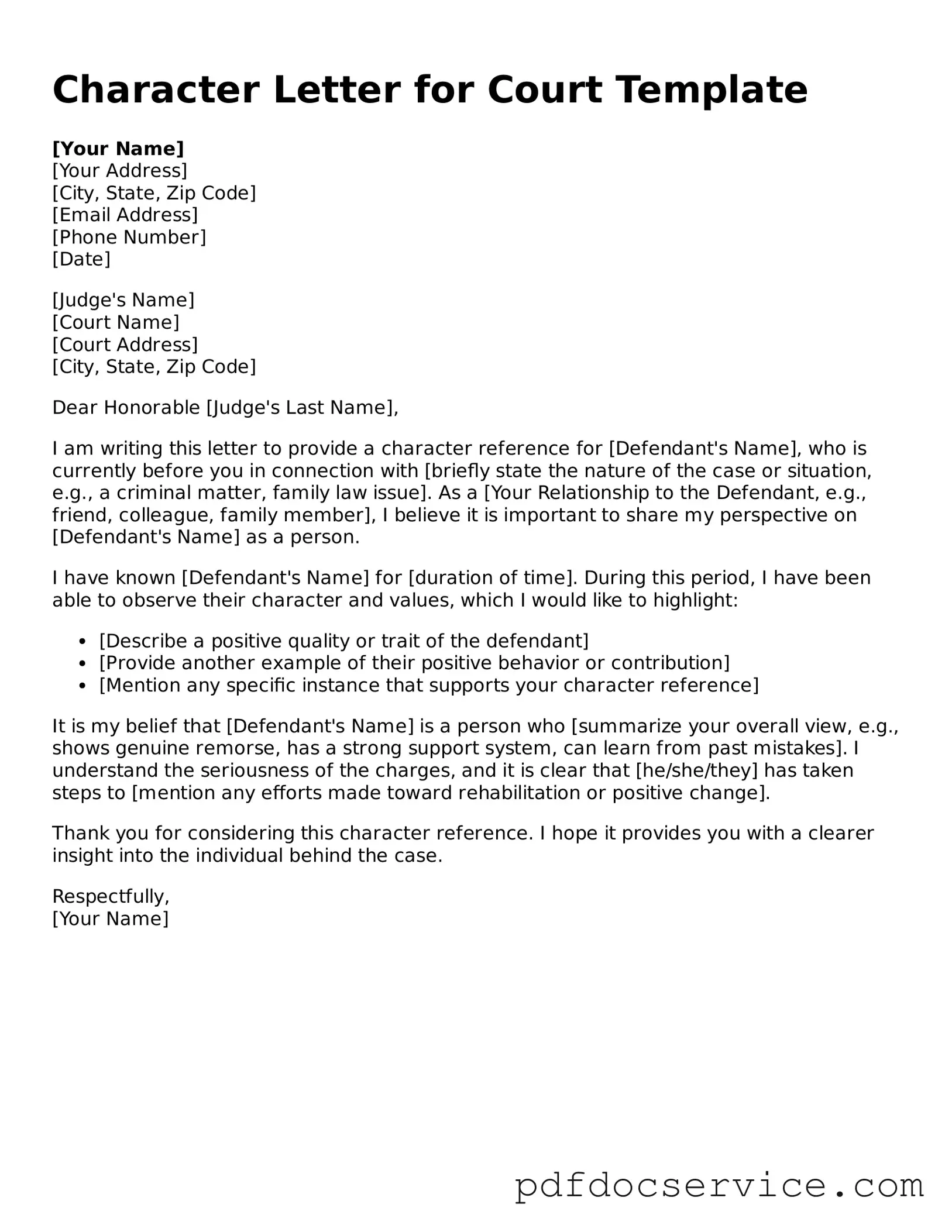Blank Character Letter for Court Form
The Character Letter for Court form is a written document that provides insight into a person's character, often used during legal proceedings. This letter can help judges understand the individual’s background, values, and contributions to the community. It plays a crucial role in influencing court decisions, making it essential for those involved in legal matters to consider its importance.
Open Character Letter for Court Editor

Blank Character Letter for Court Form
Open Character Letter for Court Editor

Open Character Letter for Court Editor
or
Get Character Letter for Court PDF
Finish the form now and be done
Finish Character Letter for Court online using simple edit, save, and download steps.